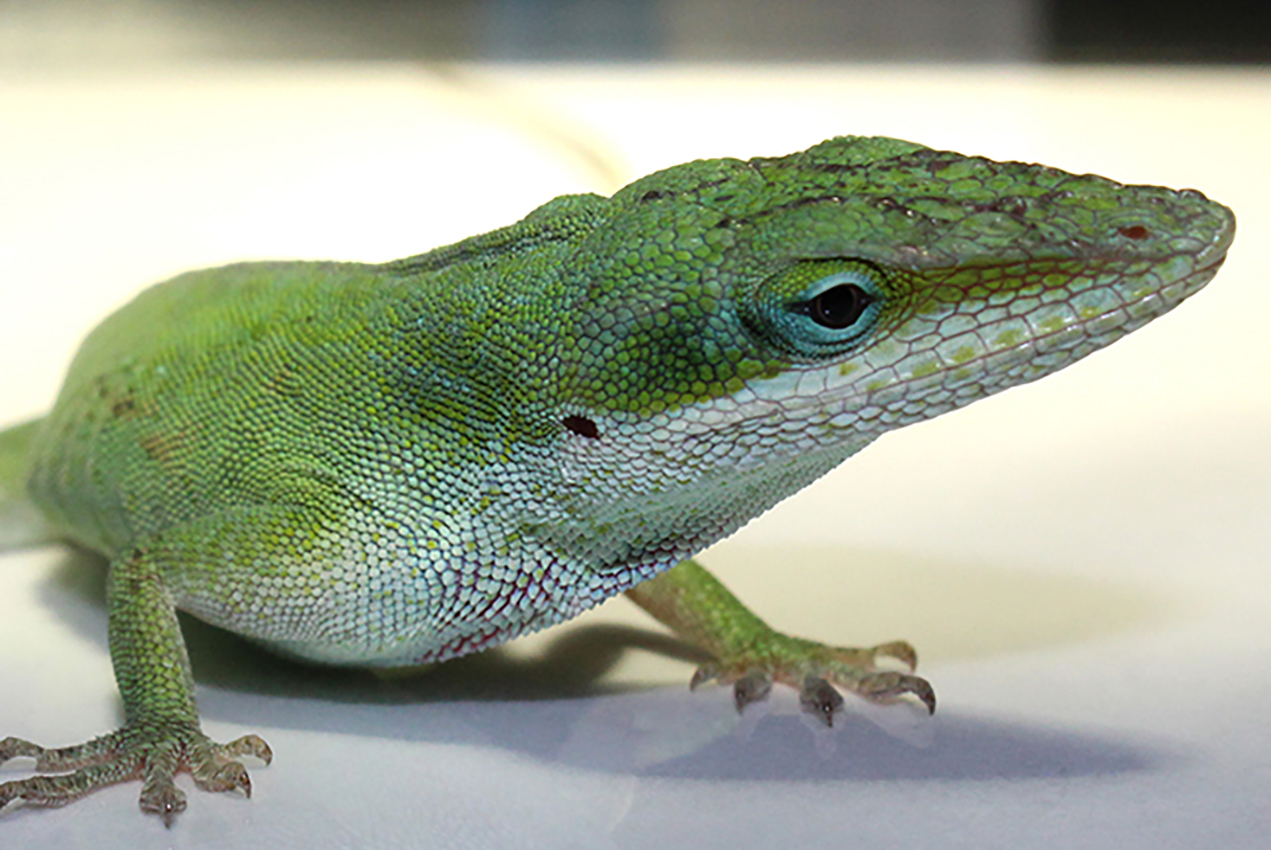The human immune system has been getting a bad rap lately. However, the lizard immune system is finally receiving its due credit for enabling lizards to regrow severed tails.
In a recent study in the Journal of Immunology and Regenerative Medicine, researchers from USC and the University of Pittsburgh describe how immune cells, called phagocytes, help lizards accomplish this incredible feat of regeneration.
“Lizards are the closest relatives of mammals capable of regrowing an appendage after injury,” said the study’s corresponding author Thomas Lozito, PhD, assistant professor of orthopaedic surgery and stem cell biology and regenerative medicine at USC. “So lizards may offer important clues that can inform tissue engineering and regenerative medicine strategies in humans.”
In the study, the researchers looked at the genetic and molecular profiles of individual cells following tail amputation in lizards and in mice, marking the first application of a technology known as single cell RNA sequencing to the study of lizard tail regeneration. In lizards, phagocytes responded more quickly and robustly to the injury, engulfing and destroying pathogens and dead cells at the amputation site and in the bloodstream. The lizard phagocytes also produced a cocktail of molecules and enzymes, called matrix proteins and metalloproteases, that kickstarted the process of breaking down and remodeling the damaged tissue into a new tail.
The study also revealed that the immune systems of lizards and mice are not very similar. Lizards have a much smaller arsenal of distinct immune cell types, and lizard phagocytes remain in a more undifferentiated, stem cell-like state.
“This study presents the first detailed comparison of lizard and mouse immune cells,” said Lozito, “and reveals differences that may underpin the divergent regenerative potentials between these two species. We hope to leverage these insights to enhance tissue regeneration and wound healing in mammals and eventually in human patients.”
The study’s authors include Ricardo Londono, Sean Tighe, Beatrice Milnes, Christian DeMoya, Lina Maria Quijano, and Stephen Badylak from the University of Pittsburgh, and Megan L. Hudnall, Joseph Nguyen, and Evelyn Tran, PhD, from the University of Southern California.
— Cristy Lytal
This research was funded by a federal grant from the National Institutes of Health (R01GM115444).


